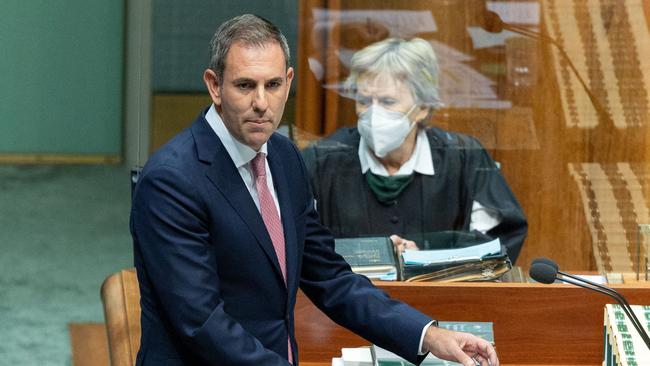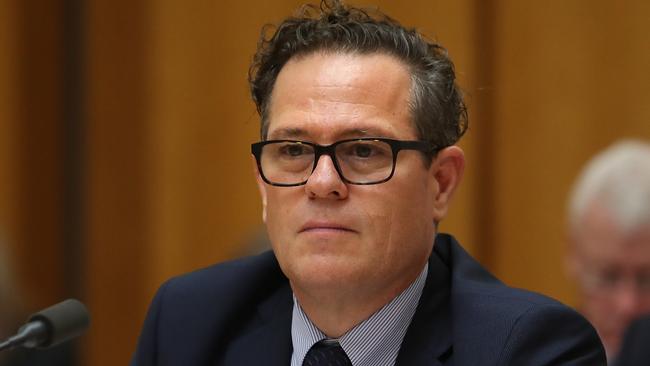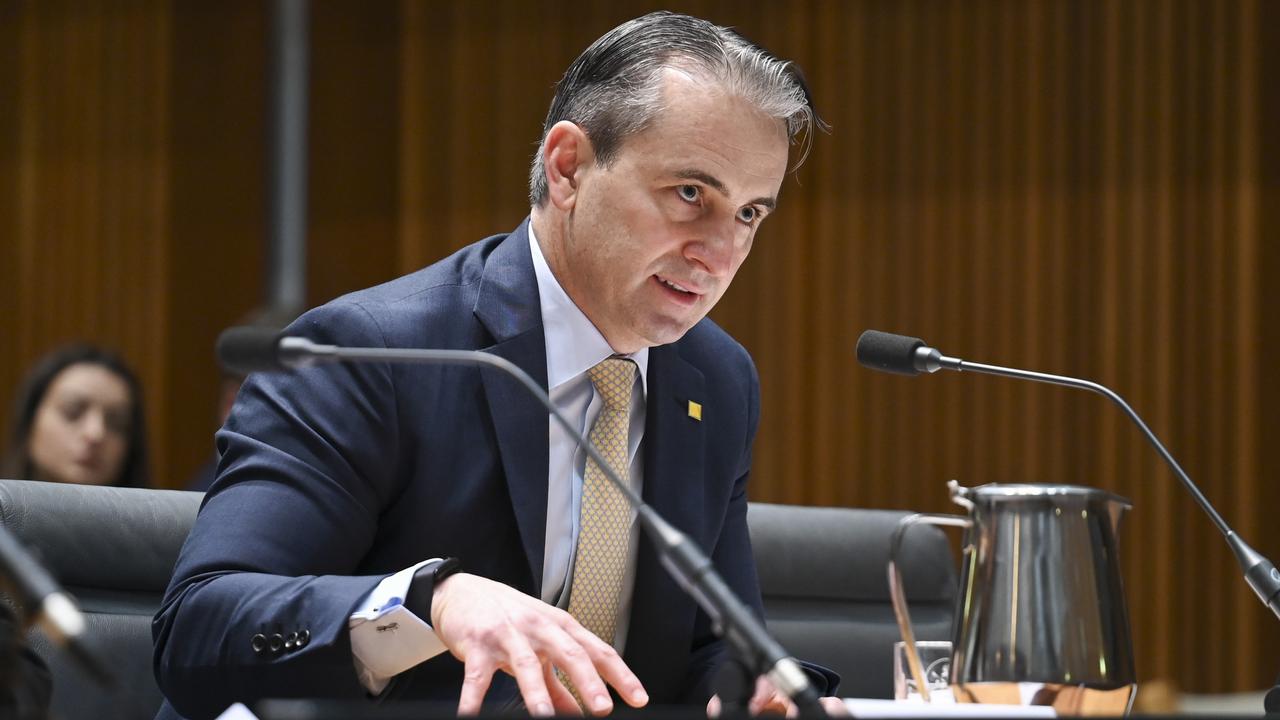Superannuation changes Treasurer Jim Chalmers urged to make to help Australians grow wealth
Treasurer Jim Chalmers is being called on to use the May Budget to overhaul Australia’s super system to help people grow their nest eggs. See what industry experts want.

Companies
Don't miss out on the headlines from Companies. Followed categories will be added to My News.
Super fund operators are calling on Treasurer Jim Chalmers to use the May Budget to overhaul Australia’s retirement savings system, beyond the mooted tax hikes on people with balances over $3m.
The system has already seen more than 30 major changes in the three decades it’s been running.
Top of the wish list from big funds is adding super payments for paid parental leave, which is estimated to cost about $1.5bn over four years, and bringing gig workers such as delivery drivers into the system.
Industry super funds also want the government to force employers to pay super at the same time as they pay wages in order to stem an underpayment crisis estimated to cost workers $4.3bn a year.
Data compiled by News Corp shows there have been at least 34 major changes to the retirement income system since compulsory super was introduced by Labor prime minister Paul Keating in 1992.
Industry sources estimate that if smaller fixes are included, the total number of changes probably exceeds 80.

Overhauls under the Coalition Howard government, which won government from Keating in 1996, included allowing SMSFs, letting banks offer retirement accounts and introducing — and then later abolishing — a surcharge on contributions to funds made by high income earners.
Tinkering continued under the Rudd and Gillard governments after Labor regained power in 2007. Changes included increasing taxes on contributions made by people earning over $300,000 a year and introducing new simpler MySuper funds that now cover most workers.
The Turnbull and Morrison governments also made significant changes that included decreasing the amount that can be tipped into super before tax and introducing a performance test to knock out sub-par funds.
So far, the Albanese government has increased the tax paid by funds that have a balance of more than $3m and is proposing to legislate a purpose for super.
Bernie Dean, the chief executive of Industry Super Australia, which represents funds holding more than $1tn that are controlled by unions and employers, said people do not like the endless tinkering with the system.
“But I think we’ve got to accept that over the last 30 years governments have tinkered with super rules regularly and I don’t imagine that anything will change over the next 30 years,” he said.
“Having said that people don’t necessarily like tinkering, there’s some tinkering that we think makes sense.”
He said ISA’s top priority was getting super paid on payday, which would cost the Budget nothing.
“Because at the moment, somewhere in the order of about five out of every $100 isn’t making it into workers super savings accounts, regardless of what it says on the pay slip,” he said.
ISA also wants super paid when people take paid parental leave — a move Mr Dean estimated would add between $14,000 and $15,000 to the super nest egg of a woman who takes leave twice to have children.

“It is anomalous, to say the least, to have the only type of leave not attracting superannuation is the one that’s most used by women,” Mr Dean said.
He said ISA was in favour of legislating a purpose for super because it would “keep future governments honest” in dealing with Australia’s $3tn retirement savings pile.
“On the issue of linking our national savings pool to national economic priorities, whether they be addressing that chronic shortfall in affordable housing, housing affordability, the transition to a greener economy, one thing that is immovable in such a discussion is that the funds will only invest in these sorts of things with an eye to the getting the best long term return for members and for no one else,” he said.
“So it’s not about doing favours for anyone.”
Blake Briggs, the CEO of the Financial Services Council, which represents funds holding about $639bn run by banks and other financial services companies, said the Commonwealth should pay super on paid parental leave.
“Even with the expansion of the scheme over time to 26 weeks, this would be a modest cost to the Budget at around $300 million per year,” he said.
Both ISA and the FSC want companies who use gig workers to pay them super.
“This will boost their retirement incomes and reduce their reliance on the age pension,” Mr Briggs said.
“FSC modelling indicates extending the Superannuation Guarantee to gig workers would mean a gig worker with five years in the industry could improve their superannuation balance by $48,000.”
More Coverage
Originally published as Superannuation changes Treasurer Jim Chalmers urged to make to help Australians grow wealth




